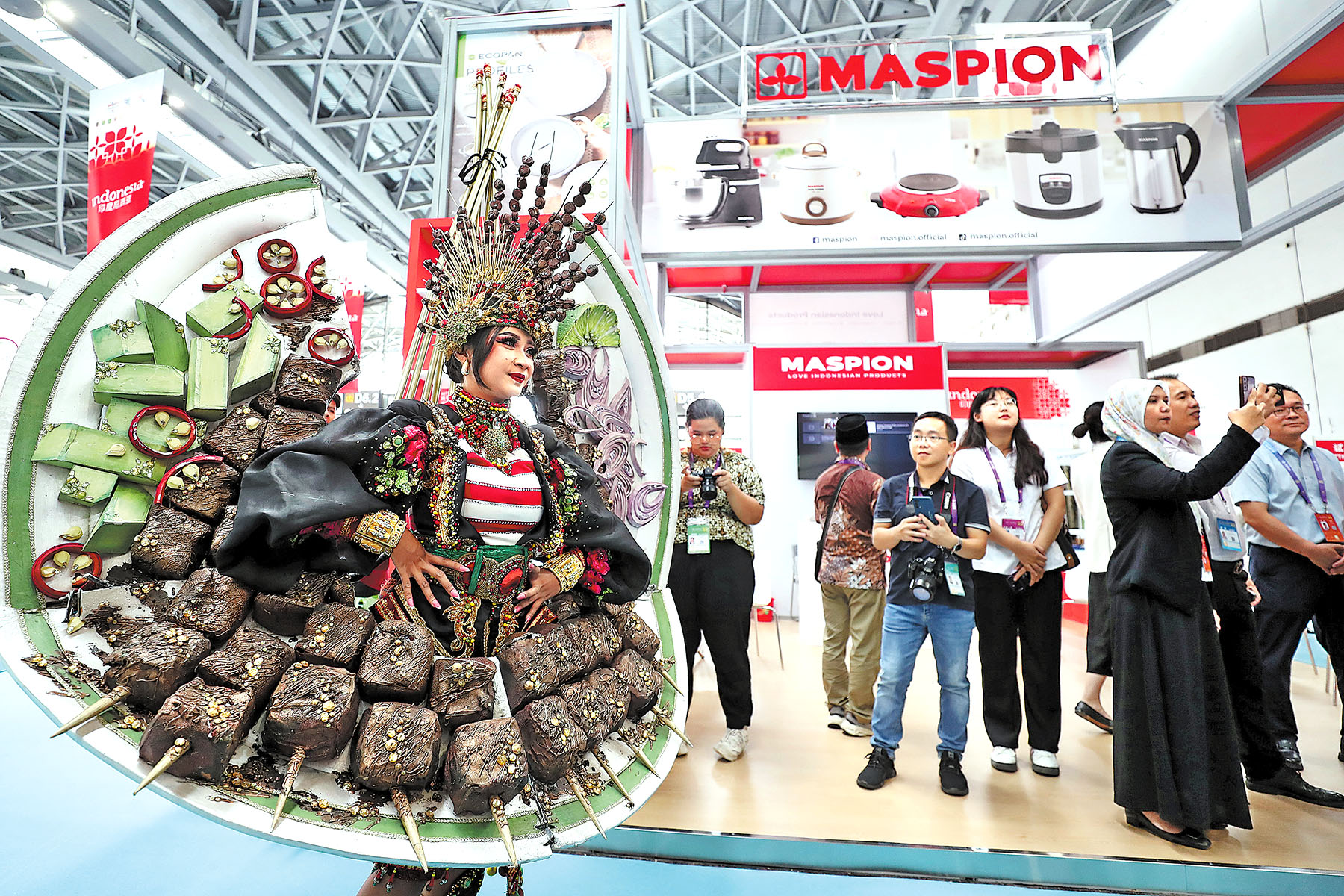
China is willing to work with the Association of Southeast Asian Nations to uphold peaceful coexistence and win-win cooperation, in order to make greater contributions to regional peace, stability and prosperity, Vice-President Han Zheng said on Wednesday.
Speaking at the opening ceremony of the 22nd China-ASEAN Expo, which runs through Sunday in Nanning, the capital of South China's Guangxi Zhuang autonomous region, Han called for accelerating regional opening-up and cooperation, jointly building the Version 3.0 China-ASEAN Free Trade Area (CAFTA 3.0), and ensuring the high-quality implementation of the Regional Comprehensive Economic Partnership, the world's largest free trade agreement by population, GDP and trade volume.
He also called for joint efforts to promote the integrated development of industrial and supply chains, expand cooperation in emerging industries, and work together to safeguard the stability of global industrial and supply chains.
READ MORE: Officials, experts: China and ASEAN further cementing ties
More than 3,200 companies from 60 countries and regions are taking part in the expo this year, data from the Ministry of Commerce showed.
With a venue space covering about 160,000 square meters, the event has added new exhibition zones at its main venue, including an artificial intelligence pavilion, a pavilion of new quality productive forces and an exhibition area for the blue, or marine, economy.
Fadillah Yusof, Malaysia's deputy prime minister and minister of energy transition and water transformation, noted that China and ASEAN have become each other's largest trading partners, saying this is a testament to their deep economic interdependence, a high level of mutual trust and a shared commitment.
Against the backdrop of increasing global uncertainty, ASEAN and China should further diversify trade and investment strategies while jointly safeguarding peace, stability and shared prosperity in the region, Fadillah said.
Similar views were shared by Mai Van Chinh, deputy prime minister of Vietnam, who said that amid mounting economic challenges, including the rise of trade barriers, it is essential to jointly build and strengthen mutual trust in cooperation.
The Vietnamese deputy prime minister said that China and ASEAN members should further open markets to create more robust conditions for trade exchanges among countries, and deepen strategic alignment to enhance infrastructure connectivity between them.
"At the same time, science and technology should be fostered as a new driver of cooperation, with particular emphasis on advancing cutting-edge fields such as AI," he added.
China-ASEAN trade rose 9.7 percent year-on-year to 4.93 trillion yuan ($694 billion) in the first eight months of 2025, hitting a historic high for the period, according to data released by the General Administration of Customs.
As of the end of July, cumulative two-way investment exceeded $450 billion, statistics from the Ministry of Commerce showed.
Meanwhile, Chinese companies have been active in contracting infrastructure projects in ASEAN economies, with a cumulative turnover of $480 billion by the end of July.
China Communications Construction Co, a participant in the China-ASEAN Expo for the 22nd time, will accelerate the rollout of "new infrastructure" projects in ASEAN markets, advance cooperation across cities, and improve transportation and waterways through digital transformation.
Unlike traditional infrastructure such as railways, roads and water conservancy, the concept of "new infrastructure" refers to facilities powered by information technologies such as 5G, AI, the industrial internet and the internet of things.
ALSO READ: Rosy future seen for biz ties with ASEAN
Zhang Bingnan, general manager of the Beijing-based, centrally administered State-owned enterprise, said, "We will align precisely with the development needs of CAFTA 3.0, ensure the smooth operation of the Phnom Penh-Sihanoukville Expressway, usher Cambodia into the high-speed era, and advance the coordinated 'port-railpark' development model of the Malaysia-China Kuantan International Logistics Park in Malaysia."
Chinese AI enterprise iFlytek will sign a number of cooperation deals with companies and educational institutes in Singapore, Malaysia, Indonesia and Myanmar at the expo.
Liu Qingfeng, chairman of iFlytek, said, "With the future implementation of CAFTA 3.0, our AI translation technology can better serve scenarios such as cross-border e-commerce, international conferences and digital content creation across the region, becoming a new form of infrastructure connecting China and ASEAN in the digital economy."
Contact the writers at zhongnan@chinadaily.com.cn


